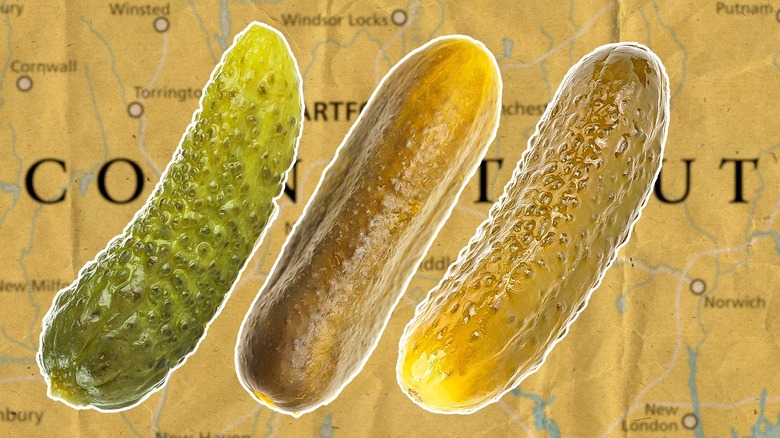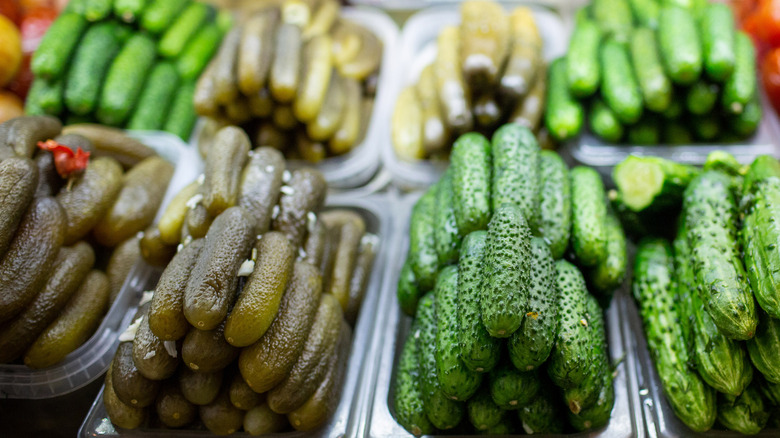Is There Actually A Law In Connecticut To Classify Pickles?
One of the more unusual "laws" often associated with Connecticut is that a pickle must bounce to be considered a pickle. It's cited as fact in many websites, listicles, and books (typically covering some of the more unusual or arcane laws that are still valid in different states or cities, such as not eating while swimming in Maryland or how it's unlawful to eat fried chicken with cutlery in Gainesville, Georgia). The question of whether such a law really exists has been directed so frequently to the reference librarians at the Connecticut State Library that they've issued a statement, complete with resources, addressing the confusion (after spending numerous hours looking over laws, ordinances, and regulations to confirm).
And the answer is definitive: There is no actual law stating that a pickle must bounce to be a pickle in Connecticut. There was, however, a case involving pickles that wouldn't bounce — the most likely origin of the pickle classification law myth.
Origin of an enduring myth
In 1948, two pickle packers were arrested for conspiring to sell pickles that weren't for human consumption and charged under a Connecticut statute concerning the misrepresentation of food products. Some of the pickle samples that had been sent to a laboratory were found to be decomposed and containing maggots. The men were subsequently found guilty, fined, and the pickles destroyed.
In discussing the case and the shocking results, the state's Food and Drug Commission shared another test for determining whether a pickle was good, namely to drop it from one foot and see if it bounced. If it did, it wasn't rotten. It was this suggestion of a pickle bounce test that caused so many to believe the test was an actual law.
If you try your own pickle bounce test, be aware that the federal USDA pickle standards allow a small percentage of even Grade A pickles to be "soft, shriveled, & slippery units," which means that they may not actually bounce if dropped.

